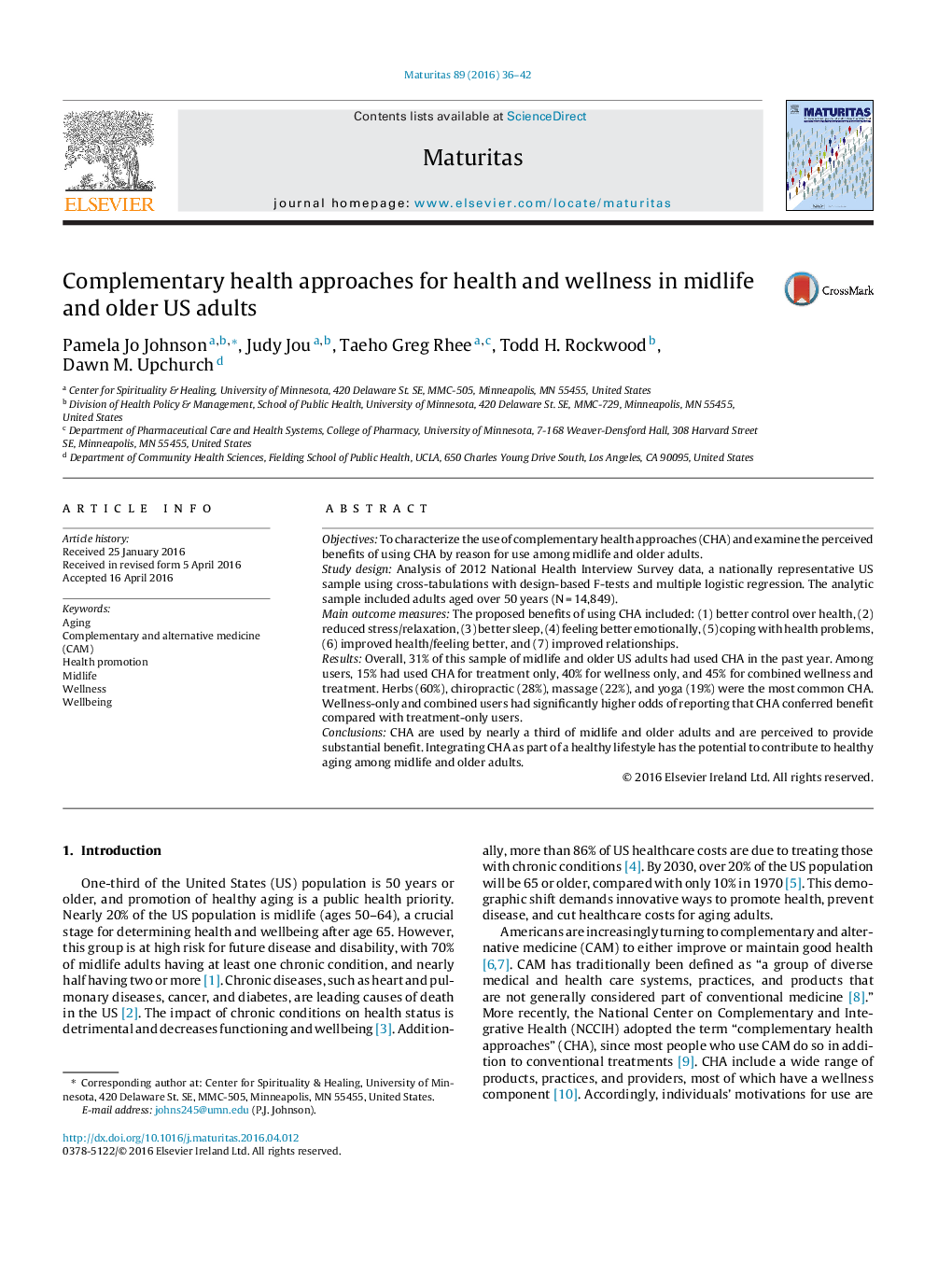| Article ID | Journal | Published Year | Pages | File Type |
|---|---|---|---|---|
| 1917005 | Maturitas | 2016 | 7 Pages |
•52% of a large sample of US adults aged over 50 had ever used complementary health approaches.•31% had used complementary health approaches in the past year.•15% had used complementary health approaches for treatment only, 40% for wellness only, and 45% for both.•Herbs (60%), chiropractic (28%), massage (22%), and yoga (19%) were the most commonly used complementary health approaches.•Wellness-only and combined users had higher odds of reporting benefits of complementary health approaches.
ObjectivesTo characterize the use of complementary health approaches (CHA) and examine the perceived benefits of using CHA by reason for use among midlife and older adults.Study designAnalysis of 2012 National Health Interview Survey data, a nationally representative US sample using cross-tabulations with design-based F-tests and multiple logistic regression. The analytic sample included adults aged over 50 years (N = 14,849).Main outcome measuresThe proposed benefits of using CHA included: (1) better control over health, (2) reduced stress/relaxation, (3) better sleep, (4) feeling better emotionally, (5) coping with health problems, (6) improved health/feeling better, and (7) improved relationships.ResultsOverall, 31% of this sample of midlife and older US adults had used CHA in the past year. Among users, 15% had used CHA for treatment only, 40% for wellness only, and 45% for combined wellness and treatment. Herbs (60%), chiropractic (28%), massage (22%), and yoga (19%) were the most common CHA. Wellness-only and combined users had significantly higher odds of reporting that CHA conferred benefit compared with treatment-only users.ConclusionsCHA are used by nearly a third of midlife and older adults and are perceived to provide substantial benefit. Integrating CHA as part of a healthy lifestyle has the potential to contribute to healthy aging among midlife and older adults.
